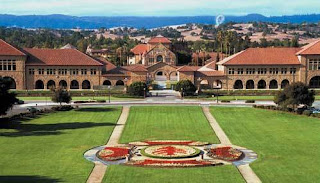Here is a sampling of just some of the work going on at Stanford Law with respect to agricultural and food law issues -
Transactional Clinic
Students in Stanford’s transactional clinic, the Organizations and Transactions Clinic (“O&T”) regularly represent nonprofit organizations involved in sustainable agriculture, food security and food system reform. The clinic, which opened in spring 2008, works with established Northern California nonprofits on corporate governance, contract and risk management matters. O&T is a one-quarter course designed to help prepare students for institutional corporate practice and, at the same time, help them see how corporate lawyers can serve community as well as commercial organizations through pro bono, board service and volunteer work.
Associate Professor Jay Mitchell serves as clinic director, and he reports that food system clients represent almost 30% of O&T’s clients, with the projects generally involving real property, organizational programming, direct marketing or governance matters.
Real property projects that the clinic has undertaken include:
- development of a lease and operating policies for an agricultural education organization that leases land to its beginning farmer students;
- preparation of a license agreement and operating policies for a sponsor of a multi-user agricultural park; and,
- development of a model community garden lease and participant agreements.
- advice and document preparation regarding community produce gleaning and local food branding programs;
- development of applications, liability releases and policies for program participants and volunteers; and,
- revision of contracts used by food banks with satellite food distribution sites.
- assisting a large farmers’ market sponsor with a complete revision of its market rules and regulations;
- development of a template site agreement for use with municipalities, shopping center operators and other owners of farmers' market sites; and
- development of documents for CSAs and for programs designed to help small farmers get access to institutional buyers.
Jay encourages other clinic directors to explore food system opportunities -- as he notes, these clients are everywhere, the system’s diversity of activities, actors and legal issues means that students can encounter a variety of legal subject matters and skill demands in a variety of modes, the familiarity and topicality of the sector creates considerable potential for student interest, and the area calls out for dedication of legal talent and pro bono resources. His sense is that the sector can generate challenging and engaging projects for helping prepare students for transactional practice and their responsibilities as lawyers.
Jay would be happy to talk with clinic directors and others interested in exploring similar opportunities. He can be reached via email at Stanford.
Stanford University Initiatives
Stanford Law faculty members regularly participate in university initiatives relating to food policy.
For example, Professor Buzz Thompson spoke about the Farm Bill at the November 2010 Food Summit that, through the leadership of the School of Medicine, brought together experts from across all of the university’s schools in a set of plenary and breakout sessions. Video clips from this excellent conference are available from the Food Summit Video Library.
Next month, Professor Thompson, along with Professor Mariano-Florentino Cuellar, will speak at the conference, Connecting the Dots: The Food, Energy, Water and Climate Nexus.
Professor Thompson directs the university’s interdisciplinary Woods Institute for the Environment and is a senior fellow at Stanford’s Freeman Splogi Institute for International Studies. The two institutes jointly sponsor the Program on Food Security and the Environment, which brings together scholars from diverse disciplines for research on global issues of hunger, food security and the environment.
From early 2009 through the summer of 2010, Professor Cuellar was on leave from Stanford to serve as Special Assistant to the President for Justice and Regulatory Policy at the White House. He led the Domestic Policy Council’s work on a variety of subjects, including public health, food safety and rural and agricultural policy, and was actively involved in the development of the Food Safety Modernization Act.
Food Policy Symposium
The Stanford Law & Policy Review sponsored a food policy symposium in 2010 focused on environmental and market regulation issues. The journal hosted panel discussions and published articles concerning labeling, food safety and nutrient pollution. The symposium volume is Issue 2 of Volume 21.
Stanford Law is leading the way in the integration of food law, agricultural law, and environmental law, and I am delighted to have the opportunity to post about the exciting work that is going on. I welcome updates as clearly, this is an area that will only grow in importance.
Stanford Law is leading the way in the integration of food law, agricultural law, and environmental law, and I am delighted to have the opportunity to post about the exciting work that is going on. I welcome updates as clearly, this is an area that will only grow in importance.





No comments:
Post a Comment